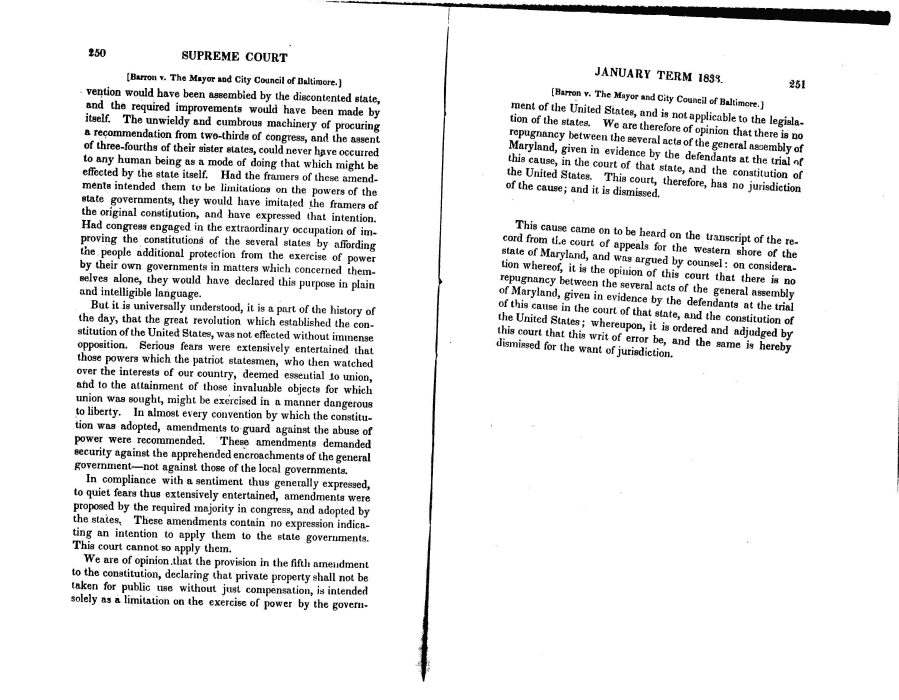|
*50
SUPREME COURT
[Burou v. The Mayor and City Council of Baltimore.]
vention would have been assembled by the discontented state,
and the required improvements would have been made by
itself. The unwieldy and cumbrous machinery of procuring
a recommendation from two-thirds of congress, and the assent
of three-fourths of their sister states, could never have occurred
to any human being as a mode of doing that which might be
effected by the state itself. Had the framers of these amend-
ments intended them to be limitations on the powers of the
state governments, they would have imitated the framers of
the original constitution, and have expressed that intention.
Had congress engaged in the extraordinary occupation of im-
proving the constitutions of the several states by affording
the people additional protection from the exercise of power
by their own governments in matters which concerned them-
selves alone, they would have declared this purpose in plain
and intelligible language.
But it is universally understood, it is a part of the history of
the day, that the great revolution which established the con-
stitution of the United States, was not effected without immense
opposition. Serious fears were extensively entertained that
those powers which the patriot statesmen, who then watched
over the interests of our country, deemed essential lo union,
and to the attainment of those invaluable objects for which
union was sought, might be exercised in a manner dangerous
to liberty. In almost every convention by which the constitu-
tion was adopted, amendments to guard against the abuse of
power were recommended. These amendments demanded
security against the apprehended encroachments of the general
government—not against those of the local governments.
In compliance with a sentiment thus generally expressed,
to quiet fears thus extensively entertained, amendments were
proposed by the required majority in congress, and adopted by
the states. These amendments contain no expression indica-
ting an intention to apply them to the state governments.
This court cannot so apply them.
We are of opinion ,that the provision in the fifth amendment
to the constitution, declaring that private property shall not be
taken for public use without just compensation, is intended
solely as a limitation on the exercise of power by the govern-
JANUARY TERM I83S. 251
[Barren v. The Mayor and City Council of Baltimore.]
ment of the United States, and is not applicable to the legisla-
tion of the states. We are therefore of opinion that there is no
repugnancy between the several acts of the general assembly of
Maryland, given in evidence by the defendants at the trial nf
this cause, in the court of that state, and the constitution of
the United States. This court, therefore, has no jurisdiction
of the cause; and it is dismissed.
This cause came on to be heard on the transcript of the re-
cord from the court of appeals for the western shore of the
state of Maryland, and was argued by counsel: on considera-
tion whereof, it is the opinion of this court that there is no
repugnancy between the several acts of the general assembly
of Maryland, given in evidence by the defendants at the trial
of this cause in the court of that state, and the constitution of
the United States; whereupon, it is ordered and adjudged by
this court that this writ of error be, and the same is hereby
dismissed for the want of jurisdiction.
|

